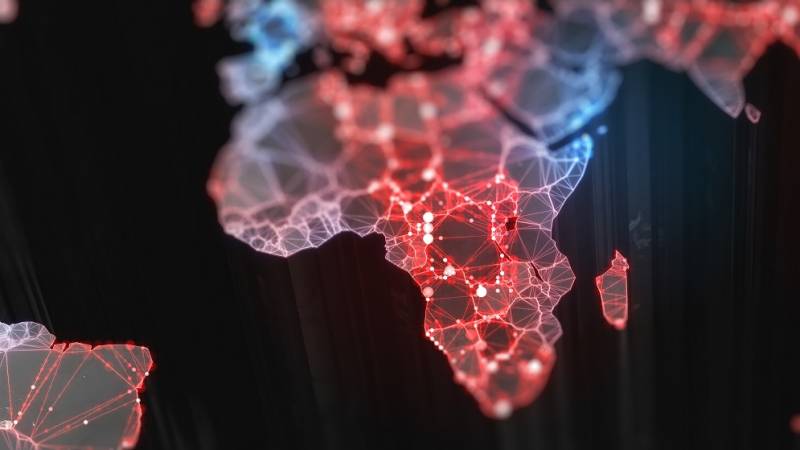Maxi Schoeman has disclosed no relevant affiliations beyond their academic appointment, and does not work for, consult, own shares in, or receive funding from any company or organization that would benefit from this article.
The Cape Peninsula University of Technology, Rhodes University, Stellenbosch University, and the Universities of Cape Town, Johannesburg, Kwa-Zulu Natal, Pretoria, and South Africa are among the eight universities that have contributed to the Conversation. The University of the Witwatersrand and the University of the Western Cape, as well as the African Population and Health Research Centre and the Nigerian Academy of Science, are hosting the conference. The Bill and Melinda Gates Foundation is a Strategic Partner of the Bill and Melinda Gates Foundation.
The organisation was founded to promote regional collaboration and long-term prosperity, has grown from 14 member states initially in 1997 to 23 in 2022. It has adopted the ‘Blue Economy’ as a focus area. It is also increasingly paying attention to climate change and environmental issues as well as the regulation of fishing and other threats of growing importance to the maritime realm.
For the US and its allies, who have largely appropriated the Indo-Pacific concept, the region is first and foremost of geo-economic concern. The economic interaction is crucial, as seen by the Build Back Better World initiative, although it remains vague on practicalities.
That China is increasingly taking note of developments in the Western Indo-Pacific is reflected in the January 2022 Africa visit of foreign minister Wang Yi. His tour focused on Africa’s eastern seaboard. It included Eritrea, Kenya, and the Comoros (and even further afield to the Maldives and Sri Lanka).
The Indo-Pacific is crucial for the interests of all these states and their regional organisations or informal forums and alliances. The two oceans have been at the heart of world trade for centuries. An estimated 80% of the world’s oil is moved across the Indian Ocean.
Furthermore, the oceans and coastal environments are emerging as the next frontier for sustainable development. As countries realize the potential in ocean and coastal resources, fishing, mineral and energy sources, and tourism are attracting investment.
Africa has long advocated for the Indian Ocean to be designated as a "zone of peace." This was originally reaffirmed in 1971 by a UN resolution. However, the ongoing geopolitical conflict in the Indo-Pacific resembles gunboat diplomacy and is causing widespread worry.
The region's prominence is growing.
In recent years, a slew of policy and strategy documents have been released outlining the Indo-Pacific viewpoints of various organizations and states.
The 'Quad' - the informal alliance between the United States, Japan, Australia, and India – has already developed and formalised individual state strategic perspectives. Although their geographic imaginations of the Indo-Pacific vary. India and Australia are also big players in the Indian Ocean Rim Association.
ASEAN (the Association of Southeast Asian Nations), Indonesia, France and the European Union all have policy documents relating to the Indo-Pacific.
One possible explanation for Africa's quiet could be because the Indian Ocean Rim Association's initial focus was on economic growth. Concerns about security are a considerably more recent issue. However, this is the organization that may most lend itself to African agencies in creating Indo-Pacific common positions based on similar interests and principles.
Outside of the organization, relations with external powers are largely bilateral. This is especially true when it comes to negotiating infrastructure projects, such as military sites.
It would be wonderful to use the association to build a vision that matches the African agenda. This is due to the fact that it provides a global platform. More over half of the group hails from the central and eastern Indian Ocean, while several are members of ASEAN and the Asia-Pacific Economic Cooperation (APEC) organisation. In addition, the association’s dialogue partners include the US, China, Russia, the UK, Egypt, Germany, Italy, Turkey and South Korea.
But it all starts with a national vision. Since 2021, for instance, Kenya has began to formulate a position on the Indo-Pacific and explored the opportunity to work with partners such as India. But it has yet to put out a clear foreign policy statement or strategy document. Neither has South Africa.
The year ahead offers an excellent opportunity for states such as South Africa to develop its approach to the Indo-Pacific. How to steer a position that would serve the country and the continent’s interests in the context of these developments, has become a serious challenge. At the same time, it could promote a broader multilateral discussion within the African Union.
While a development agenda is still important, it is becoming increasingly clear that there is no escaping the reality of a region that is becoming increasingly politicized and militarized.




